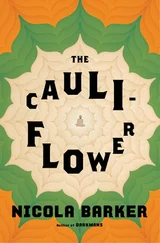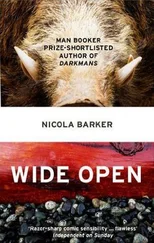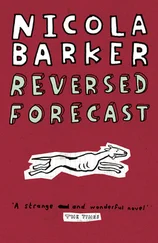(I know, I know . I’m growing far too bold with my summary quotations, but I’m planning to plead this one under ‘diminished responsibility’. Because I’m virtually insensible with fever here.)
And that’s all Kafka needs to say, really: ‘so friendly…so cruel’. He has no reason to elaborate any further. His point is made. Because we all know who these girls are …They’re the kinds of females who — in modern times — might enjoy a ‘written correspondence’ with a serial killer. Or the type who — in far distant history — might’ve discovered a ‘deep affinity’ with a particular saint, then’ve become a nun (with a heavy sideline in self-flagellation), then’ve had a series of hysterical fits, then’ve experienced a ‘revelation’, then’ve participated in a series of degenerate sex-acts with a 15-year-old monk in the neighbouring monastery as ‘an expression of God’s True Will’ etc. (Is this nun-related scenario especially imaginative, or am I just tiredly reiterating the plot of a second-rate porn film which I saw last year? Oh . You saw that film too , eh?).
They’re like Valkyries (these women); carefully picking themselves a nice, neat path through blood-sodden fields crammed with the still-steaming corpses of the recently slaughtered.
Hmmn . I can’t honestly pretend that I feel sufficiently familiar with the Blaine situation to draw too many parallels at this stage…( Blaine . Remember him? Still sitting patiently by the river, a lively crowd milling around restively to the fore, a waxing moon hanging whitely behind… Remember ?).
Although there was this one woman…
I happened to catch a glimpse of her whilst idly flipping channels (on the late-nite rerun of the Channel 4 reality TV hairdressing series, The Salon ). She came in to the salon to tell the nation how she was planning— tah-dah ! — not to wash her hair for the duration of the Illusionist’s spate in his box.
I say again: this simpering dim-wit fully intended to let no shampoo or water touch her (already rather rank-looking) blonde locks (and she was a blonde. I see no point in evading that fact) for the 44-day period of Blaine’s dramatic fast.
Wha?!
Is this sympathetic madness? Hard-boiled (but utterly deluded) exhibitionism? A deep-set follicle-related sense of self-loathing? Or does this girl-moron have a subterranean grudge against all the friendly folks at Pantene Pro-v, perhaps?
Imagine actually appearing on TV — in a salon , of all places — to announce how dirty you’re planning to get? Not only that, but to ‘seek advice’ on the ‘hair ordeal’ you’re about to face?
This girl actually brought in a photo of herself — down at the riverside, with all the other punters — hanging out with Blaine’s lady-love (the aforementioned Manon of the Big Feet).
Poor Manon — being obliged to have her picture taken with this lank-haired girl-maniac on account of something psychotic her boyfriend’s done. I mean is this what an international model expects when she starts dating a multimillionaire? Is this glamorous? Is this ‘spiritual’? Is this meaningful? Is this fun?
Uh… Sorry . Quick five minute break, there, to ponder a little more on the manifold virtues of Ms Von Gerkan.
Yeah.
That’s better.
Now where were we?
So they take the Hunger Artist out of his cage — he fights it for a while (doesn’t want to leave — is there a name for that? I don’t know why, but I’m thinking it might actually be called ‘Hostage Syndrome’. Isn’t it what happened to Patty Hearst? Where you kinda become your oppressor?), but he’s so weak now that they can easily drag him out, even under duress.
Then the band strikes up (to prevent him from speaking — he’d probably ask to go back in again, or make a depressing speech and ruin the celebratory atmosphere) and he is set down in front of a table laid with food (a veritable banquet) and obliged to eat some of it.
But he cannot.
So the Impresario crams a few bits and pieces into his hapless mouth as the band plays on. Then the Impresario pretends that the Artist has asked him to propose a toast to the public (although he proposed no such thing) and the toast is made, then everybody disperses, perfectly satisfied.
Time passes (in the story), and a gradual change takes place in the public’s taste re fasting. Kafka says that there may’ve been ‘profound’ reasons for this change, but, ‘who was going to bother about that?’, i.e. he doesn’t give a damn what the reasons are. Or he does, perhaps, but society doesn’t. So what the heck, eh?
This apparent ‘indifference’ eventually turns into an active hostility (which is where we are now, fasting-wise, I guess — except for in India, maybe, and some other Eastern countries where doing without still has strong associations with devotion and piety).
The Artist and his impresario go their separate ways. The Impresario is just an opportunist — your typical shonky manager — and within the story he basically represents Capitalism (note, capital C). The Artist subsequently sells himself to a circus who simply want to trade off his famous name (and have no interest in his craft, per se ).
And then (to cut a short story shorter), he’s just left in his cage to starve and nobody actually gives a damn about him. Because the Impresario isn’t there, he just carries on (he never stops ). He breaks all these fasting limits and records, but nobody even notices (in essence, Kafka’s implying that while the Impresario was merciless he was also an essential cog in the fasting machine — because in his own, rough-hewn way, he was committed to the Artist. You know? The way McDonald’s, say, are committed to the cow ).
Anyhow, the Artist fasts and fasts, but nobody even sees him any more. He’s just this bag of bones in an old cage under a pile of dirty straw.
One day the circus ‘overseer’ observes that the cage is empty and asks why. They shift the straw and expose the Hunger Artist. He is still alive, but only just. He’s in a terrible state — not at all blissful or victorious (as you might’ve imagined) but full of hatred and self-disgust. He whispers (in his last breaths — and to an indifferent audience) that his fasting is in no way ‘admirable’, and then he explains why…
Man —you’re just gonna have to go out and buy the book. Because I can’t quote this entire section, even though I’d love to. Suffice to say, the Artist whispers to the overseer that the only reason he ever fasted was because he couldn’t ever find ‘the food I liked’.
Then he dies and they replace him with a panther.
Fin .
After I throw down the book, I can’t help dwelling on it. This idea (this — a hem —‘grande dénouement’) that the Artist is only what he is ( who he is) because he actually hates all food is rather an ingenious one. And it’s not just literal , i.e. it’s not so much food he rejects as life itself (love, ambition, Art, sex, who cares? Everything ).
Did Blaine sympathise with this tragic creature (I wonder) when hold him in contempt? he read the story? Or did he hold him in contempt? Is this how he feels? Is this his psychology? I mean are his stunts about holding life precious (which I suppose would have to be the official PR — or they’d section him, basically), or are they about holding it cheap (or even holding it at bay )? Because surely if you hold life cheap, the risks you take don’t actually signify anything ? They’re just empty gestures. And the stunt itself is stripped of all meaningfulness.
Читать дальше
Конец ознакомительного отрывка
Купить книгу












